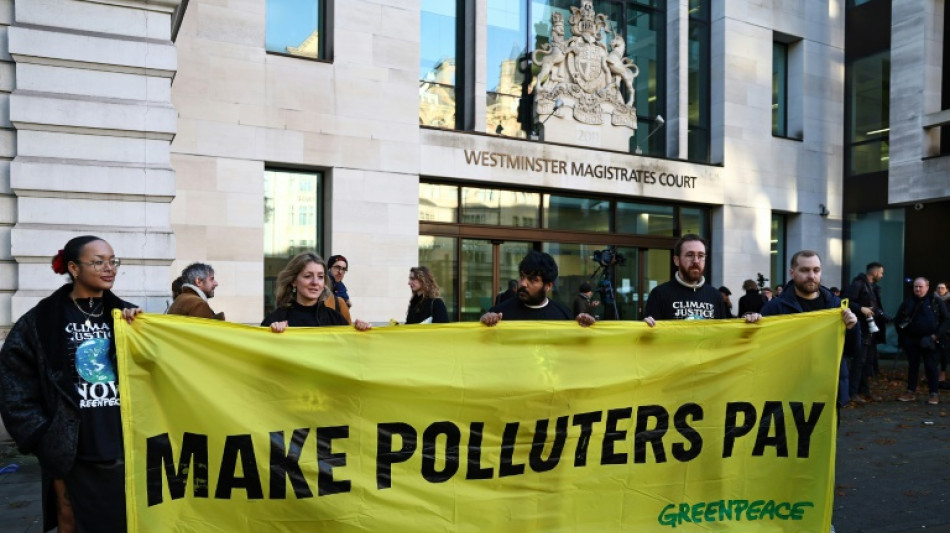Climate lawsuits against companies on the rise: report / Photo: HENRY NICHOLLS - AFP/File
Companies worldwide have faced mounting legal pressure to reduce their impact on global warming as activists use litigation to fight climate change, according to a new report Thursday.
Since the 2015 Paris Agreement, 230 "climate-aligned" lawsuits have been launched against corporations and trade associations -- more than two-thirds of which were filed since 2020, said the report by the Grantham Research Institute at the London School of Economics.
"Cases against companies have traditionally been focused on the fossil fuel sector but they are now being launched across other sectors, including airlines, the food and beverage industry, e-commerce and financial services," the report said.
The 2021 ruling in the Netherlands against multinational oil giant Shell, which was ordered to reduce its CO2 emissions by 45 percent by 2030, has become a milestone in climate litigation.
Accusations of "climate-washing" or misleading marketing have been among the drivers for more recent cases against corporations.
Last year, British courts banned adverts by Air France, Lufthansa and Etihad over concerns they misled customers, which came months after a similar decision in Vienna against Austrian Airlines.
Other cases are based on the principle that the "polluter pays" or seek "turning off the taps" to new fossil fuel projects by targeting the flow of financing to extractive industries.
Less than a tenth of the the total 2,666 lawsuits filed to date worldwide were against corporations, said the report using data from the Sabin Center for Climate Change Law at Columbia Law School.
More often, governments are the defendants.
However in 2023, cases against companies made up of a quarter of the 233 lawsuits filed that year alone, the report said.
- International rulings -
In September, the state of California took the role of plaintiff, suing five of the world's largest oil companies alleging the firms caused billions of dollars in damages and misled the public by minimising the risks from fossil fuels.
While historically, most lawsuits have been filed in the United States, accounting for 1,745 cases, action has been increasingly launched in other jurisdictions.
Portugal saw its first case filed last year over alleged human rights violations for failing to implement climate change policy, as did Panama over a mining project.
"2023 was an important year for international climate change litigation, with major international courts and tribunals being asked to rule and advise on climate change," the report said.
The Inter-American Court of Human Rights is due to give an advisory opinion this year on a country's duties when "responding to the climate emergency under the framework of international human rights law", following a case brought by Chile and Colombia in January 2023.
The European Court of Human Rights in April made a historic ruling against Switzerland, deeming it was not doing enough to tackle climate change -- a decision that could force governments to adopt more ambitious climate policies.
"Just five percent of climate cases have been brought before international courts, but many of these cases have significant potential to influence domestic proceedings," the report said.
The report's authors anticipate a rise in "post-disaster" cases in the future, pointing to recent action in hurricane-hit Puerto Rico against the reconstruction of fossil fuel infrastructure.
The concept of "ecocide" and efforts to address environmental crimes could be another ground for lawsuits, as are converging issues such as plastic pollution and the impact on climate change, the report said.
F.Prabhu--BD
